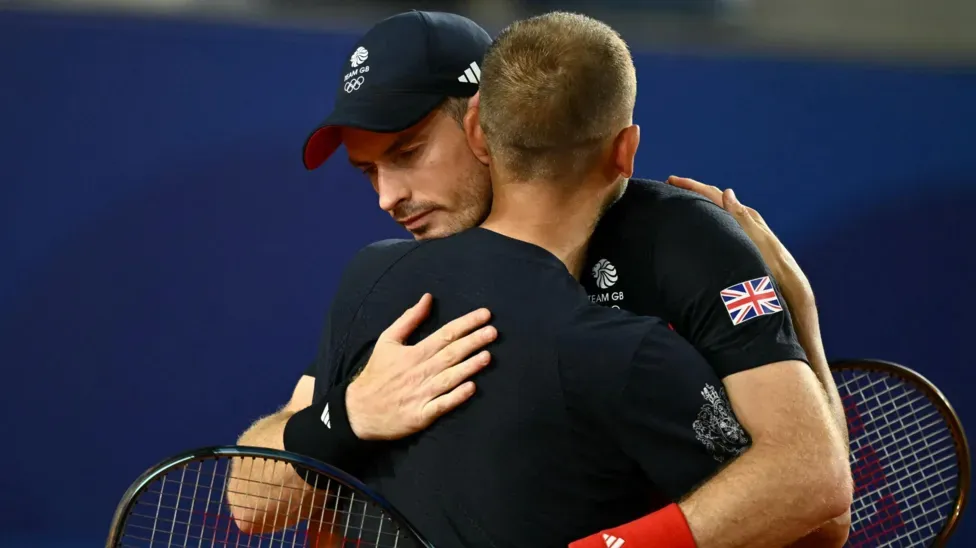
Emotional Farewell at the Paris 2024 Olympics
Andy Murray cried. Dan Evans cried. Even BBC television presenter Clare Balding cried. In the moments after Murray’s illustrious career came to an end at the Paris 2024 Olympics, there was an outpouring of emotion. It was felt at Roland Garros by Murray, by his British teammates, and by the thousands of adoring fans chanting his name.
A Nation’s Tribute to a Sporting Icon
It was also felt across a nation which will never see one of its sporting icons play professionally again. Balding’s reaction probably summed up the feelings of many who have watched this British hero over the years. “Obviously, it was emotional because it’s the last time I will play a competitive match,” said Murray, who was also applauded by his mother Judy watching on. “But I am genuinely happy just now. I’m happy with how it finished.”
Murray’s Public Emotions
Murray is no stranger to getting emotional in public, of course. Most famously, there were the tears on Wimbledon’s Centre Court after losing to Roger Federer in the 2012 final, finally endearing him to a larger share of the British public. “This isn’t going to be easy…” he said to Sue Barker on court post-match that day, before the tears came.
Tears and Triumphs
Before that, he welled up after losing the 2010 Australian Open final to Roger Federer – quipping he could “cry like Roger… it’s a shame I can’t play like him”. Once he did land that Grand Slam title – and two more after that – it was injury that led to more tears. In 2018, he sobbed uncontrollably under his towel at the Washington Open as he battled through hip pain.
The End of an Era
On the eve of the 2019 Australian Open, Murray broke down in a pre-tournament news conference when he revealed he might have to retire because of impending hip resurfacing surgery, which he thought would end his career. Five and a half years later, and after squeezing every last drop out of his comeback, Murray was finally content to call it a day. “It’s been really hard. Physically, pain-wise, I feel bad,” he said.
Final Months and Tough Decisions
After the initial tears at Roland Garros had dried, a contemplative Murray revealed how tough the final few months had been for him. An ankle injury in March disrupted what was already planned to be his final season and when he did manage to race back, his participation in an emotional goodbye to Wimbledon came under threat as he needed back surgery to remove a cyst. Murray had long conceded he was unlikely to have a “perfect ending” but admitted he “fast-tracked his rehab” in order to play at the Olympics.
Tributes from Peers and Admirers
Murray means a lot of different things to a lot of people who don’t even know him: Sporting icon who has taken British tennis to new heights; advocate for gender equality in a male-dominated sport; all-around decent guy with acerbically dry humor. The droll side of his personality came out again shortly after he had finished speaking to the media. “Never even liked tennis anyway,” he wrote on social media.
Legacy and Future
A measure of Murray is the plaudits that came his way from a wide spectrum of admirers. Novak Djokovic, the man considered the greatest player of all time, has known Murray since they met as 12-year-olds playing on the junior tour. “I have only praise for him,” said the Serb. “He’s been an incredible competitor out on the court and one of the greatest warriors tennis has seen. His fighting spirit is something that will inspire many generations to come.” Whatever the abiding memory of Murray’s career will be, and whatever he does next, it can only be universally understood that British tennis – indeed British sport – will be a poorer place without him.(PHWIN)